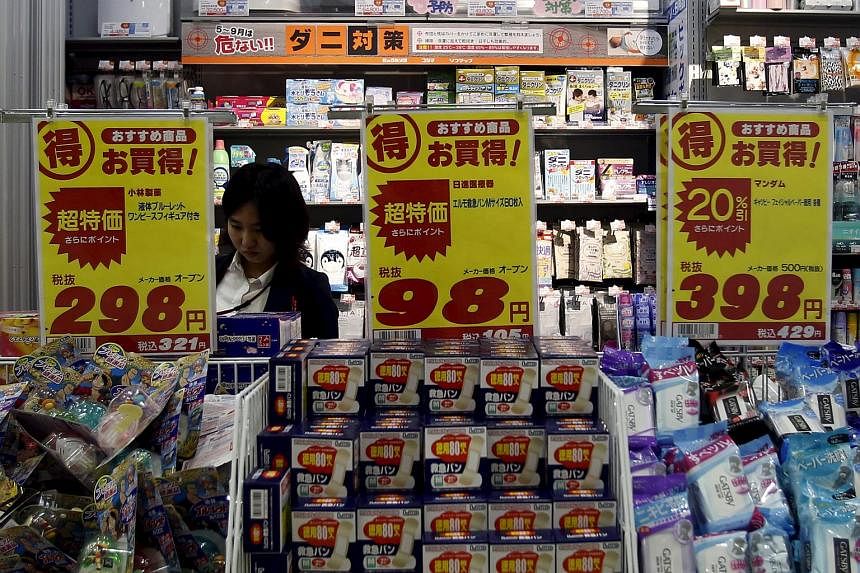TOKYO (BLOOMBERG) - Japanese consumer prices rose fractionally in May, as central bank chief Haruhiko Kuroda tries to generate inflation with unprecedented monetary stimulus.
Consumer prices excluding fresh food increased 0.1 percent from a year earlier, the statistics bureau said on Friday, versus forecasts by economists for inflation to be unchanged. Unemployment remained at 3.3 per cent while household spending eked out a gain for the first time in more than a year.
Growth that's forecast to slow this quarter risks damping inflation that MR Kuroda predicts will pick up later in the year as the effects of the plunge in oil prices fade. Only 2 of 32 economists see the BOJ reaching its 2 per cent target by September next year, with a majority forecasting an eventual increase in stimulus.
"It's too early for the BOJ to be relieved, even with inflation data that's a bit stronger," said Kiichi Murashima, an economist at Citigroup Inc. who accurately forecast the May figure. "Today's data tell us that Japan's economy has a tight labor market but it's not fueling consumer spending."
Household spending in May increased 4.8 per cent from a year earlier, having slumped more tham 10 per cent in March and dropped 1.3 percent in April.
The price of travel packages to overseas and bills for domestic hotel contributed to the rise in consumer prices, Murashima said.
The central bank refrained from boosting its unprecedented stimulus last week, with MR Kuroda sticking to his view that the underlying trend in consumer prices is upward. Expectations that inflation will pick up have been maintained, even with slower readings in the data, some members of the BOJ's board said at a May policy meeting.
Oil prices have dropped by more than 40 per cent from last year's peak in June. Cheaper energy could help drive declines in consumer prices of as much as 0.2 per cent before inflation picks up again, MR Takahashi said.
The weak yen - a source of higher import costs - could support inflationary pressures. The Japanese currency was at 123.52 against the US dollar at 9:31 a.m., after reaching a 13-year low on June 5.
A Cabinet Office survey released this month showed that 87 percent of households expect the cost of living to increase in the year ahead.
"We have to carefully watch to see if households welcome an increase in prices," said Atsushi Takeda, an economist at Itochu Corp. "They may still be in saving mode without much wage growth."

